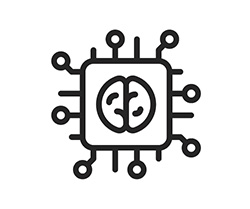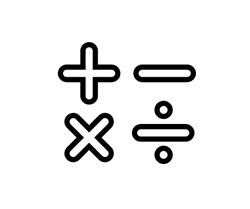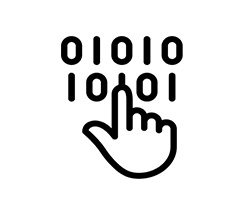Computational Sciences Minor

Have you ever wanted to learn the latest in computing technologies and apply those skills to your specific field without needing to earn a degree in computer science? Would you like to be ahead of the competition in the job market with computing skills that will positively impact your career? The minor in computational sciences at Penn State may give you a leg up.
Offered by the School of Electrical Engineering and Computer Science’s Department of Computer Science and Engineering, the computational sciences minor introduces students to the fundamental skills needed to apply computational techniques to their specific domains. The minor focuses on practical application of computing technologies for data analysis including foundations in programming, developing computational models, and constructing event-driven programs.
Courses
The 18-credit computational sciences minor includes four courses on programming, the fundamentals of data science, and machine learning. Students customize the minor to suit their needs through two approved computing-related courses from their major disciplines.
Required Courses
- CMPSC 204: Introduction to Computations Sciences Programming
- CMPSC 205: Intermediate Computational Sciences Programming
- CMPSC 301: Event-Driven Programming for Computational Sciences
- CMPSC 348: Data Science and Machine Learning for Computational Sciences
Supporting Courses
Select six credits of 400-level courses from the approved list of supporting courses.
- AERSP 423: Introduction to Numerical Methods in Fluid Dynamics
- AERSP 440: Introduction to Software Engineering for Aerospace Engineers
- AERSP 458: Advanced Orbital Mechanics
- AERSP 460: Aerospace Control Systems
- ASTRO 410: Computational Astrophysics
- ASTRO 415: Introduction to Astrostatistics
- CHEM 408: Computational Chemistry
- CHEM 452: Physical Chemistry - Quantum Chemistry
- CMPSC 450: Concurrent Scientific Programming
- CMPSC 451 (MATH 451): Numerical Computations
- CMPSC 455 (MATH 455): Introduction to Numerical Analysis I
- EE 453: Fundamentals of Digital Signal Processing
- EE 454 (CMPEN 454): Fundamentals of Computer Vision
- EE 455 (CMPEN 455): An Introduction to Digital Image Processing
- EE 456 (EGEE 456, ESC 456): Introduction to Neural Networks
- EE 482:Introduction to Digital Control Systems
- ESC 407: Computer Methods in Engineering Science, Honors
- ESC 456 (EE 456, EGEE 456): Introduction to Neural Networks
- ESC 483 (MATSE 483): Simulation and Design of Nanostructures
- IE 405: Deterministic Models in Operations Research
- IE 408: Cognitive Work Design
- IE 418: Human/Computer Interface Design
- IE 425: Stochastic Models in Operations Research
- IE 433: Regression Analysis and Design of Experiments
- IE 453: Simulation Modeling for Decision Support
- IE 456: Industrial Robot Applications
- IE 468: Optimization Modeling and Methods
- MATH 452: Deep Learning Algorithms and Analysis
- MATH 457: Introduction to Mathematical Logic
- MATH 465: Number Theory
- MATH 467 (CMPSC 467): Factorization and Primality Testing
- MATH 468: Mathematical Coding Theory
- MATH 482: Mathematical Methods of Operations Research
- ME 421
- ME 423: Introduction to Numerical Methods in Fluid Dynamics
- ME 428: Applied Computational Fluid Dynamics
- ME 444: Engineering Optimization
- ME 450: Modeling of Dynamic Systems
- ME 456: Introduction to Robotics
- ME 461 (EMCH 461): Finite Elements in Engineering
- ME 481: Introduction to Computer-Aided Analysis of Machine Dynamics
- PHYS 410: Introduction to Quantum Mechanics I
- PHYS 411: Introduction to Quantum Mechanics II
- PHYS 419 (MATH 419): Theoretical Mechanics
- PHYS 430: Introduction to Computational Physics
- STAT 414 (MATH 413): Introduction to Probability Theory
- STAT 415 (MATH 415): Introduction to Mathematical Statistics
- STAT 416 (MATH 416): Stochastic Modeling
- STAT 418 (MATH 418): Introduction to Probability and Stochastic Processes for Engineering
- STAT 440: Computational Statistics
- STAT 460: Intermediate Applied Statistics
- STAT 462: Applied Regression Analysis
- STAT 463: Applied Time Series Analysis
- STAT 466: Survey Sampling
- STAT 483: Statistical Programming in SAS
Contact
To learn more about the computational sciences minor and how you can enroll, contact Jack Sampson, associate professor of computer science and engineering and associate department head, at jms1257@psu.edu or Department of Computer Science and Engineering advising at cseadvising@engr.psu.edu.

-
Is Computational Sciences the Right Minor for Me?
- The computational sciences minor provides students with the necessary skills to use computers to study and solve scientific, engineering, and data-centric problems across a wide range of disciplines.
- Consider this minor if you:

- Like to analyze and solve complex problems

- Excel in math

- Want to apply computational methods to your discipline



